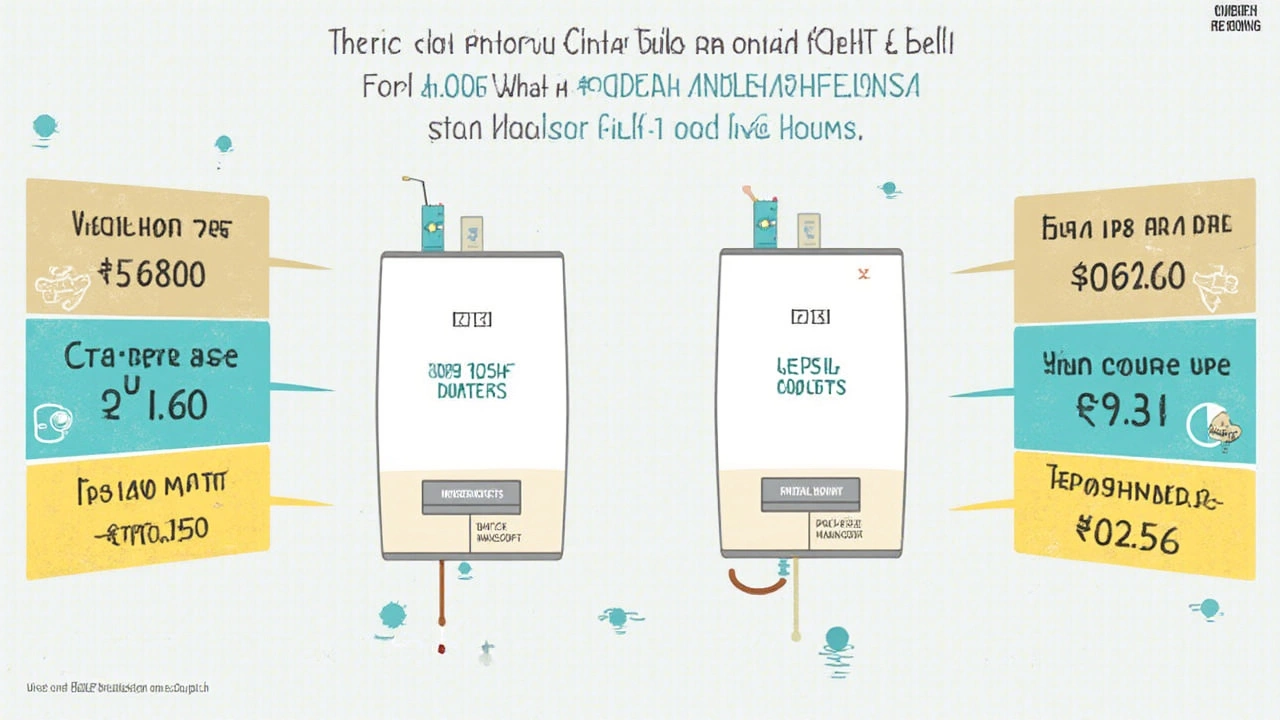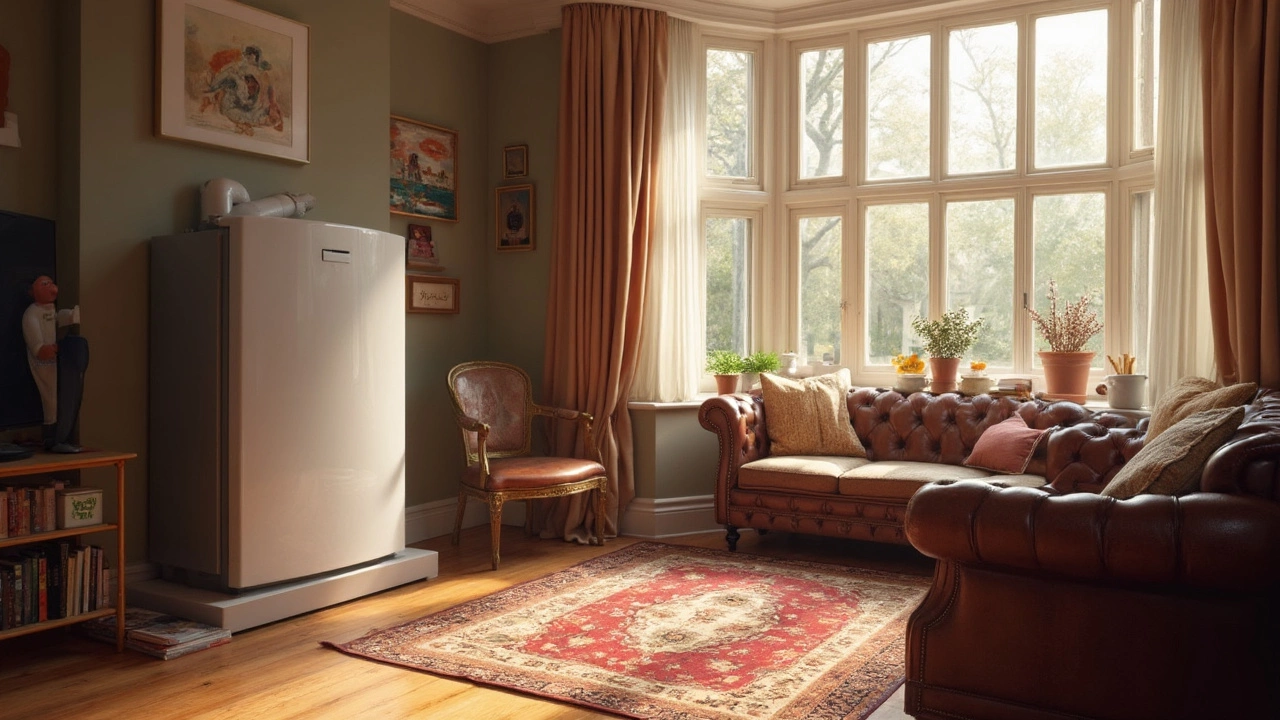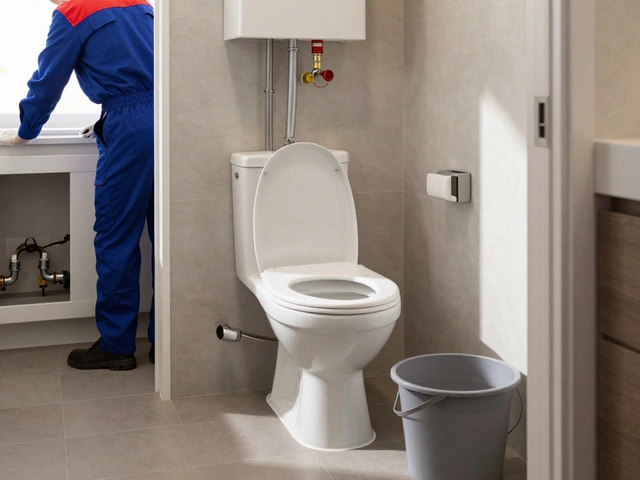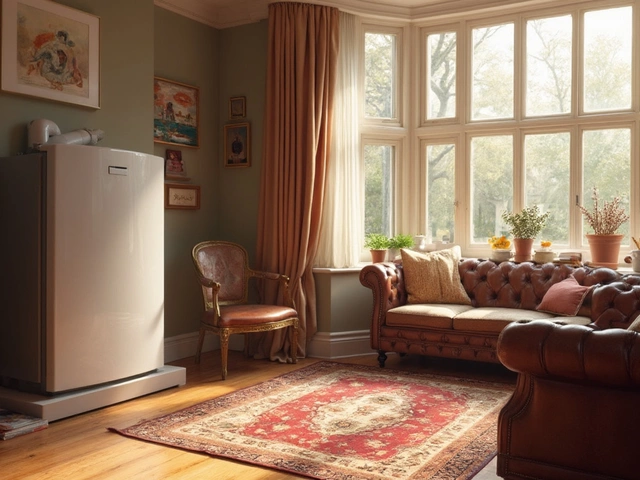So, you're thinking of getting a new boiler, huh? First off, let's talk about how much this might cost you. There's no one-size-fits-all answer because several factors come into play. The type of boiler you choose can significantly impact the price. Are you looking at combi boilers, or maybe a conventional system? Each has its own price range.
Beyond the boiler itself, installation costs add a hefty chunk to your bill. Imagine you've picked out a shiny new unit, but without proper install, it won't do much good. Labor isn't cheap, and you'll also need to consider the cost of any extras like new piping or system connections.
There's more to keep in mind than just the upfront price; think about efficiency ratings too. A more efficient boiler might cost more initially but can save you money on energy bills over time. Talk about a win-win!
But here's the thing: Not every home needs the most expensive model on the market. Knowing your specific requirements can help avoid overspending. Plus, keep an eye out for government incentives; sometimes, you can snag a rebate just for upgrading to a more efficient system.
- Understanding Boiler Costs
- Factors Influencing Boiler Pricing
- Choosing the Right Boiler Type
- Installation Fees and Extras
- Cost-saving Tips
- Maintaining Your Boiler for Longevity
Understanding Boiler Costs
When it comes to buying a new boiler, it's essential to get your head around the different costs involved. Trust me, it's not just about the price tag you see on the box. Buying the unit itself is just one slice of the pie.
Boiler Price Range
Typically, the price for a new boiler depends on the type. For instance, combi boilers usually cost between $2,000 and $4,000. On the other hand, a conventional system might set you back a bit more, sometimes hitting the $5,000 mark, especially if you're looking at top-tier brands.
Installation Costs
Next comes the installation. This isn't something you want to DIY unless you're a certified pro. Installation can add anywhere from $1,500 to $3,000 to your costs. This includes labor, but also additional materials like copper pipes or radiators if they're needed. Get quotes from multiple people to see if you're getting a fair deal.
Size and Efficiency
Choosing the right size is vital. Going too big or too small can lead to inefficiency and higher energy bills. That's why it's crucial to consider the specific heating demands of your home. More efficient boilers, though pricier upfront, often lead to savings in the long run. Keep that in mind when weighing options.
Additional Fees
- Permits: Don't forget the paperwork. You might need permits that could cost between $100 and $500.
- Removal of Old Boiler: Disposing of your old system isn't free. The removal can add a couple of hundred bucks to your bill.
- Warranty Extensions: They might offer peace of mind but check if it's worth the additional cost.
Keep a keen eye on these factors as you budget for your boiler replacement. After all, it's about getting the best value for what you're spending!
| Boiler Type | Cost Range |
|---|---|
| Combi | $2,000 - $4,000 |
| Conventional | $3,000 - $5,000 |
Factors Influencing Boiler Pricing
When you're on the hunt for a new boiler, understanding what affects the price can save you some bucks—and stress! It's more than just the sticker price on your chosen unit. Let’s dive into the details.
Type of Boiler
There are several boiler types out there like combi boilers, system boilers, and regular boilers. A combi boiler is typically cheaper to install since it combines heating and hot water without any need for tanks or cylinders. But, if you're in a larger home with multiple bathrooms, you might lean towards a system or regular boiler, which can handle multiple hot water demands better.
Brand and Model
Just like with cars, the brand you choose affects the price. Trustworthy brands with solid reputations tend to charge more. However, they often come with better warranties and, sometimes, more robust customer service.
Installation Complexity
Installation isn’t just about fitting a boiler. If your current setup requires upgrading the gas lines, flue systems, or radiators, costs can soar. If the new boiler installation is straightforward, costs drop.
Efficiency Ratings
Efficiency is a biggie. Boilers with higher efficiency ratings might cost more upfront but can slash your energy bills. The Energy Saving Trust says upgrading to a more efficient unit could chop up to 20-30% off your bills annually.
Location
Believe it or not, where you live can affect boiler costs! Cities usually see higher labor and equipment prices compared to rural areas. Plus, emergency installations during peak winter months could add extra charges.
Additional Features
Modern boilers come with cool features like smart controls or connected apps, but these can add to the cost. Weigh up what features are nice-to-haves versus must-haves.
To give you a clearer picture, here's a quick comparison of potential costs:
| Boiler Type | Average Cost (Unit + Installation) |
|---|---|
| Combi Boiler | $2,000 - $4,000 |
| System Boiler | $3,000 - $5,500 |
| Regular Boiler | $2,500 - $5,000 |
Remember, each home is different, so getting a few quotes from heating experts can help you lock in a price that fits your budget. And don't forget to check for any government-backed schemes for a potential rebate!
Choosing the Right Boiler Type
Picking the right new boiler isn't as daunting as it sounds once you know what to look for. Let's break down the main types, shall we?
Combi Boilers
Combi boilers are hugely popular because they essentially do it all. They provide hot water and heating on demand. No need for a separate water tank, which makes them great space-savers. Ideal for small to medium-sized homes, these could be your best bet if space is at a premium.
“Combi boilers can be a smart choice for households looking to reduce water usage and optimize energy efficiency,” says John Duffy, a heating engineer with over 20 years in the field.
System Boilers
Got a bigger household? System boilers come with a water cylinder for storing hot water. This makes them capable of handling higher demands. They're perfect if you have multiple bathrooms or plan on using lots of water late at night or early in the morning.
Conventional Boilers
These are a bit old school but still in use. Conventional or regular boilers are best for homes with traditional heating setups with a separate hot water tank and large radiator systems. If you're doing a lot of laundry or have a green thumb that demands warm greenhouses, conventional might just cut it.
Here's a handy table to keep things clear:
| Boiler Type | Best Suited For | Space Requirements |
|---|---|---|
| Combi Boiler | Small-medium homes | Compact |
| System Boiler | Large homes | Needs space for cylinder |
| Conventional Boiler | Very large homes | Needs tank and cylinder |
Before making a decision, assess your home’s energy needs and heat demand. A glance at your wall space and how many showers you take can steer you closer to your ideal pick.

Installation Fees and Extras
Alright, now that you've got your eye on a new boiler, let's break down the installation fees and all those pesky extras that might sneak up on you. It's not just about plopping the new boiler into place; a lot more goes into making sure everything's hooked up and running smoothly.
Installation Costs
The installation costs can vary quite a bit, usually ranging from $500 to $1,500. Why the wide range? A lot depends on your current setup and any changes needed to get the new boiler going. For instance, if the new unit requires different connections or an overhaul of your existing pipework, expect those costs to climb.
Extras to Consider
- Venting Adjustments: Sometimes, your venting system might need upgrades. Inadequate venting can lead to inefficiency and safety hazards.
- System Flush: Got an old system full of gunk? A power flush could be in order, costing around $300 to $600 but ensuring your boiler runs efficiently.
- Thermostat Upgrades: It might be a good time to consider upgrading to a smart thermostat for better energy management. These might set you back an extra $150 to $300.
- Permit Fees: Some areas require permits to install a new boiler. These fees can add a bit more to your overall costs.
Potential Savings
Before you balk at these numbers, remember there are ways to save. Quality installation can extend the life of your boiler and improve its efficiency, leading to lower energy bills. Plus, professional installers might offer package deals or discounts during off-peak seasons. And don't forget to check for any rebates or incentives for energy-efficient models!
| Cost Item | Average Price |
|---|---|
| Basic Installation | $500 - $1,500 |
| System Flush | $300 - $600 |
| Thermostat Upgrade | $150 - $300 |
| Venting Work | $200 - $700 |
In the end, knowing what to expect can make the process far less daunting and keep your budget in check. Whether you're looking at initial costs or dealing with unexpected extras, a little prep work goes a long way!
Cost-saving Tips
Looking to save some cash on your new boiler? You're in the right place. Cutting costs doesn't mean you have to sacrifice quality. Here’s a bunch of tips to help stretch your budget further.
Invest in Energy Efficiency
Opting for a high-efficiency boiler could be a game changer. While these might cost more upfront, energy savings over time can be significant. Look for models with a high AFUE (Annual Fuel Utilization Efficiency) rating. Basically, the higher the AFUE number, the better. It means your boiler uses more of the fuel it takes in to actually heat your home, rather than wasting it. Pretty neat, right?
Don’t Forget the Maintenance
A little love goes a long way. Regular maintenance is key to keeping your boiler in tip-top shape and avoiding expensive repairs down the line. Check your system annually at least, and tackle mineral build-up and sediment removal as needed. A good old service call can extend your boiler’s lifespan.
Capitalizing on Rebates and Incentives
Many governments and energy companies offer rebates or incentives when you install energy-efficient appliances, including boilers. It’s worth checking in to see what’s available in your area. You might be able to shave hundreds off the initial price.
Shop Around and Compare
Every supplier has different pricing. It’s tempting to go with the first quote you get, but don’t. Compare prices from multiple vendors and installers. The savings from just a few quotes can be quite substantial.
Avoiding Oversized Boilers
Go with the size that suits your home’s actual needs. An oversized boiler not only costs more to buy and install but also uses up more energy. Getting a professional assessment can prevent you from buying more than you really need.
Here’s a quick look at how different boiler types can impact your energy savings:
| Boiler Type | Average Cost | Efficiency Potential |
|---|---|---|
| Combi Boiler | $2,500 - $4,500 | Very High |
| System Boiler | $3,000 - $5,000 | Moderate |
| Conventional Boiler | $2,200 - $3,200 | Lower |
An informed decision goes a long way. With these tips, you’ll be able to enjoy the warmth without burning through your wallet.
Maintaining Your Boiler for Longevity
Keeping your boiler in tip-top shape doesn't have to be a headache. A little regular maintenance goes a long way in preventing unexpected breakdowns and extending the life of your new boiler. Trust me, you don't want to be left in the cold when winter hits!
Regular Check-Ups
Just like regular doctor's visits keep us healthy, servicing your boiler annually keeps it running smoothly. An engineer will ensure everything is functioning properly and catch any potential issues early. This service typically includes cleaning components, checking for leaks, and making necessary adjustments. It's a small price to pay for peace of mind.
Stay Safe with Pressure Checks
Ensure your boiler's pressure is neither too low nor too high. Most systems work best around 1-1.5 bars. If you notice pressure dropping or rising unexpectedly, it might be time to consult a professional.
Bleed Your Radiators
Radiators not heating up as they should? Air might be trapped inside, hindering performance. Bleeding your radiators releases this air, enhancing efficiency and ensuring you're not wasting energy.
Keep an Eye on the Flame
Your boiler's flame should burn a strong blue. If it looks yellow or orange, that's a sign something's not right. That's your cue to get an expert involved to avoid potential dangers.
Insulate Pipes
In colder months, frozen pipes can lead to system shutdowns. Insulating your pipes is a clever preventative measure and keeps your boiler running without a hitch.
A Quick Maintenance Checklist
- Schedule annual inspections.
- Check system pressure regularly.
- Bleed radiators every season.
- Look for a steady blue flame.
- Insulate exposed pipes for winter.
| Task | Frequency | Cost Range |
|---|---|---|
| Annual Inspection | Yearly | $70 - $150 |
| Pressure Check | Monthly | Free |
| Bleeding Radiators | Bi-annually | Free |
| Flame Check | Monthly | Free |
| Pipe Insulation | Once a year | $20 - $50 |
By following these tips, you can ensure your boiler stays efficient and long-lasting, giving you quality warmth and comfort season after season.




